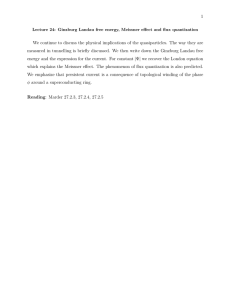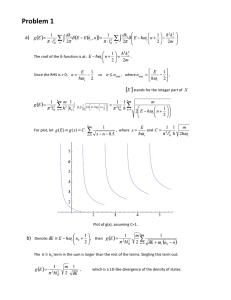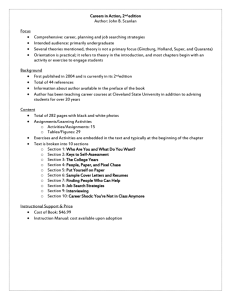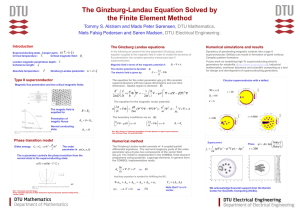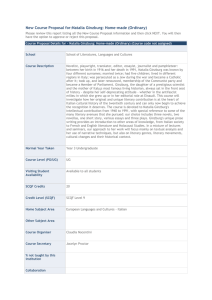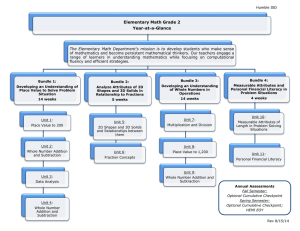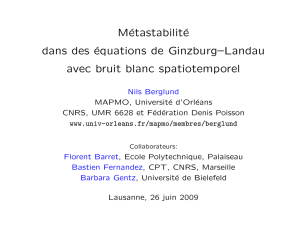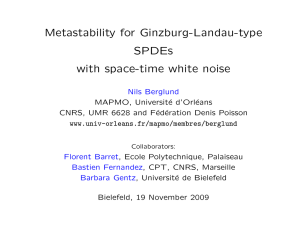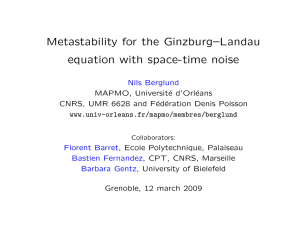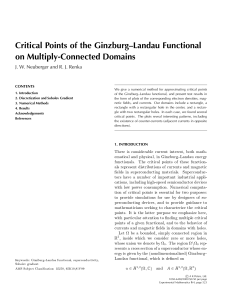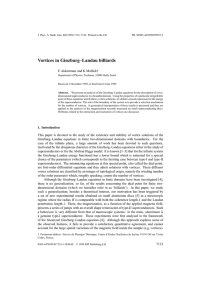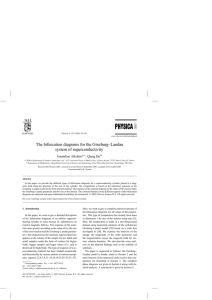SELF-DUALITY FOR LANDAU–GINZBURG MODELS BRIAN CALLANDER, ELIZABETH GASPARIM, ROLLO JENKINS AND
advertisement
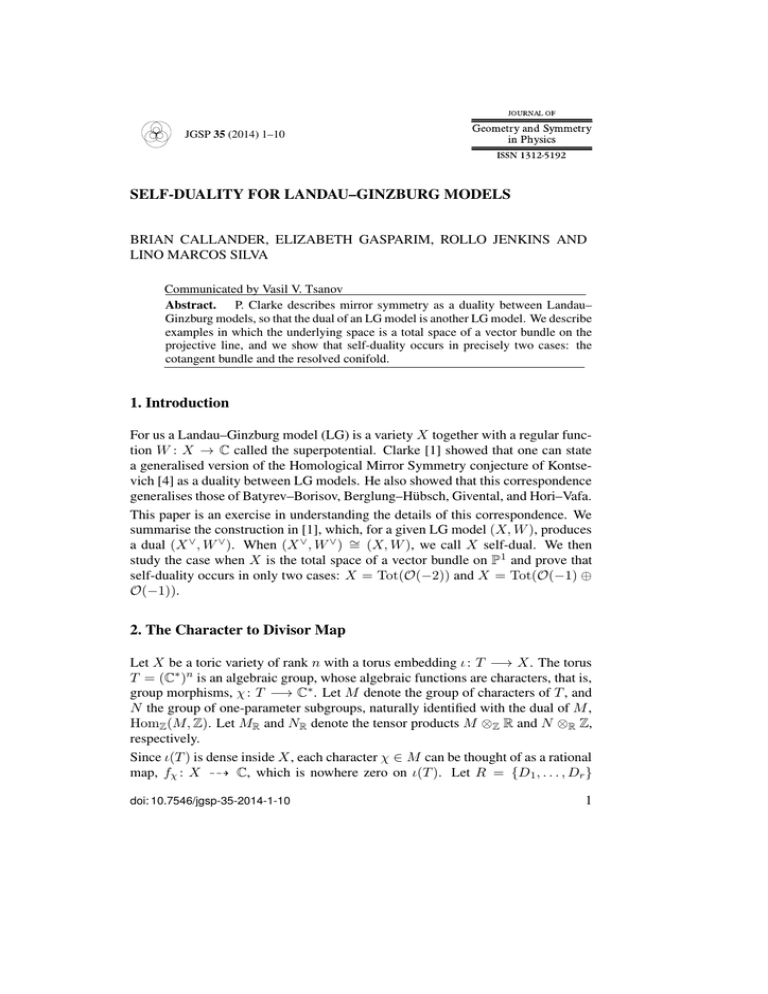
JGSP 35 (2014) 1–10
SELF-DUALITY FOR LANDAU–GINZBURG MODELS
BRIAN CALLANDER, ELIZABETH GASPARIM, ROLLO JENKINS AND
LINO MARCOS SILVA
Communicated by Vasil V. Tsanov
Abstract. P. Clarke describes mirror symmetry as a duality between Landau–
Ginzburg models, so that the dual of an LG model is another LG model. We describe
examples in which the underlying space is a total space of a vector bundle on the
projective line, and we show that self-duality occurs in precisely two cases: the
cotangent bundle and the resolved conifold.
1. Introduction
For us a Landau–Ginzburg model (LG) is a variety X together with a regular function W : X → C called the superpotential. Clarke [1] showed that one can state
a generalised version of the Homological Mirror Symmetry conjecture of Kontsevich [4] as a duality between LG models. He also showed that this correspondence
generalises those of Batyrev–Borisov, Berglung–Hübsch, Givental, and Hori–Vafa.
This paper is an exercise in understanding the details of this correspondence. We
summarise the construction in [1], which, for a given LG model (X, W ), produces
a dual (X ∨ , W ∨ ). When (X ∨ , W ∨ ) ∼
= (X, W ), we call X self-dual. We then
study the case when X is the total space of a vector bundle on P 1 and prove that
self-duality occurs in only two cases: X = Tot(O(−2)) and X = Tot(O(−1) ⊕
O(−1)).
2. The Character to Divisor Map
Let X be a toric variety of rank n with a torus embedding ι : T −→ X. The torus
T = (C∗ )n is an algebraic group, whose algebraic functions are characters, that is,
group morphisms, χ : T −→ C∗ . Let M denote the group of characters of T , and
N the group of one-parameter subgroups, naturally identified with the dual of M ,
HomZ (M, Z). Let MR and NR denote the tensor products M ⊗Z R and N ⊗R Z,
respectively.
Since ι(T ) is dense inside X, each character χ ∈ M can be thought of as a rational
map, fχ : X 99K C, which is nowhere zero on ι(T ). Let R = {D1 , . . . , Dr }
doi: 10.7546/jgsp-35-2014-1-10
1
